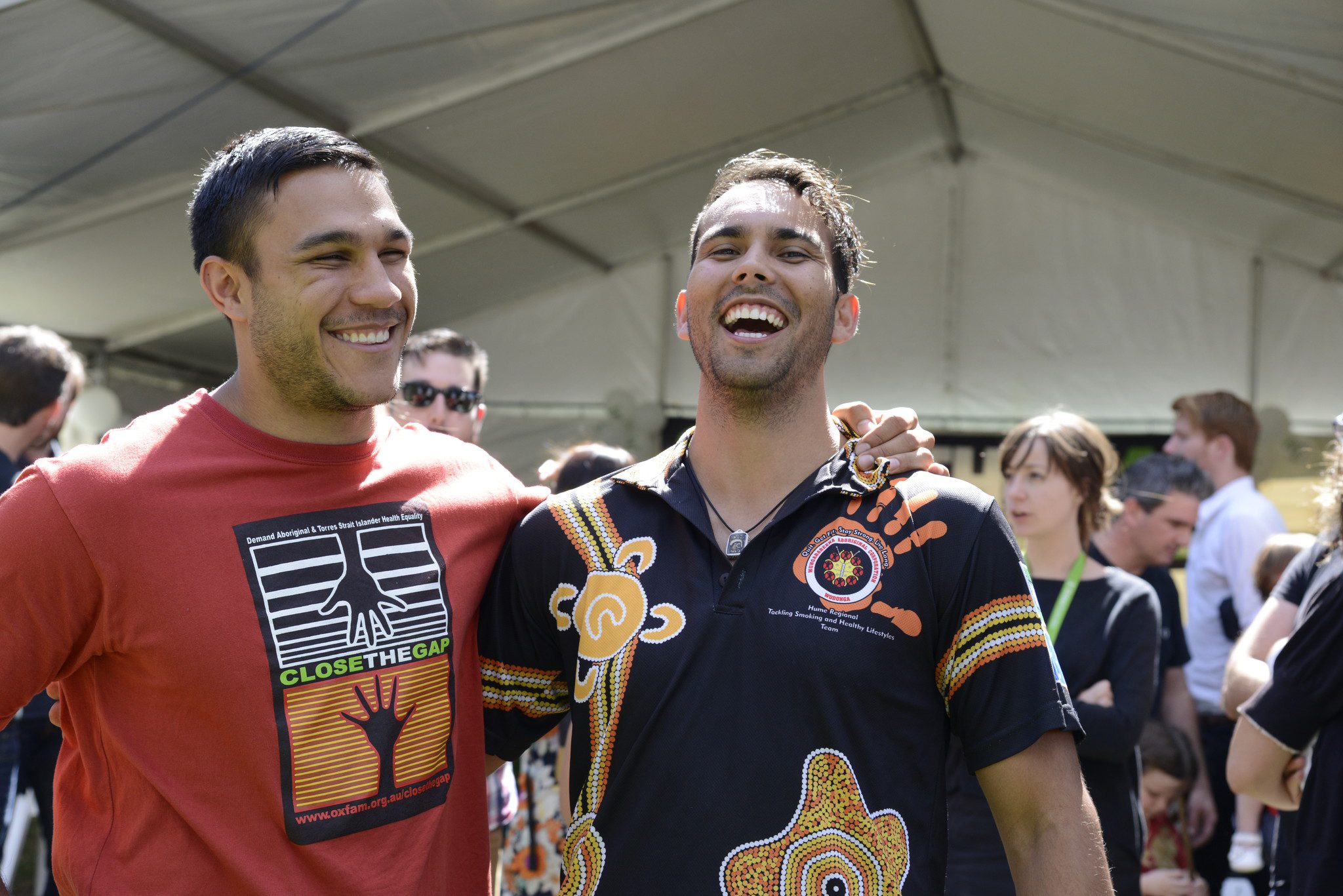
By Justin McCaul, National Program Manager, Aboriginal and Torres Strait Islander Peoples Program
Australia’s Constitution took effect in 1901. Since then, the few references to Aboriginal Peoples in our founding document have not protected them from discrimination. And as for Torres Strait Islander Peoples, they haven’t been mentioned at all.
The debate about removing the remaining powers that have been used to discriminate against Aboriginal and Torres Strait Islander Peoples, and replacing these with a text that protects against any further loss of our unique Indigenous cultures, has been going on for decades. Since the 1970s, a parallel (and at times interconnected) debate has also been promoted by a variety of Aboriginal and Torres Strait Islander organisations and leaders on the issues of sovereignty and a treaty.
As if that wasn’t enough to spur the debate over recognition, the lack of action on these issues has also been noted by the international community, which has regularly raised concerns about Australia’s upholding of Indigenous rights (or rather, its lack thereof).
The issue has come to a head in recent years. And since 2010, Oxfam has been working alongside Indigenous and non-Indigenous organisations and the 250,000 Australians that now support the “Recognise” campaign to help ensure our Constitution gets the scrutiny it deserves.
Unfortunately, the issue of constitutional recognition has sparked quite a bit of confusion and misinformation about what recognition would (and wouldn’t) actually mean for Australia’s Indigenous and non-Indigenous populations. Then there are the widely rebuked comments made recently by the Prime Minister about how the process of recognition should be undertaken. Sadly, too many of these comments have served only to distract and undermine the process.
Debate is fundamental to working through this issue, but it’s only helpful when we have a proper understanding of the facts and a respect for a process that is ultimately controlled by Aboriginal and Torres Strait Islander Peoples.
So what do we know?
1. The current process for recognition was initiated by the Greens and Independents in return for support of the former minority Gillard Government.
2. Oxfam’s involvement and support of the Recognise campaign is at the level of promoting community understanding of the issues.
3. The Recognise campaign itself is concerned with awareness raising, not the finalisation of any particular model.
4. Legal advice is that constitutional recognition of Aboriginal and Torres Strait Islander Peoples will not prohibit future consideration of the issues of Indigenous sovereignty or treaty.
5. A final model for recognition is yet to be developed. Our support for any model is dependent on it:
• being supported by a clear majority of Aboriginal and Torres Strait Islander peoples
• not precluding or impairing discussion of the unresolved issue of Indigenous sovereignty
• not enabling the government to make negative discriminatory laws concerning Aboriginal and Torres Strait Islander peoples.
6. There have been two recent surveys of Aboriginal and Torres Strait Islander people to gauge their opinions on implementing some form of constitutional recognition:
• The first, the “IndigenousX” survey, was a self-selecting survey conducted through social networks on Facebook and Twitter. This survey found that 58% of respondents didn’t support the Recognise campaign.
• A second survey was conducted by the Recognise campaign. This was conducted by a professional polling company and involved a large sample of Aboriginal and Torres Strait Islander people who were selected randomly from amongst the wider Indigenous population. (Quotas were imposed to ensure the survey reflected the demographic profile of the overall Aboriginal and Torres Strait Islander population.) This survey was conducted by phone and via online panels. This second survey found that 87% of Aboriginal and Torres Strait Islander people support constitutional recognition in general terms.
Read more on constitutional recognition.